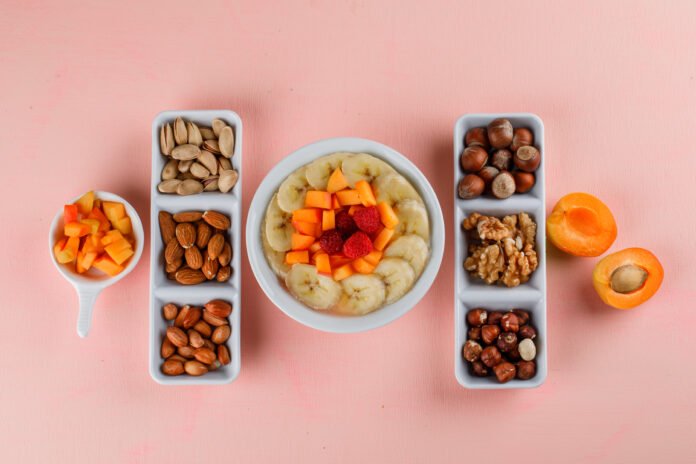Snacking is often viewed as an unhealthy habit, but when done right, it can be a great way to sustain energy levels, curb hunger, and provide essential nutrients. The key is to make smart choices that nourish the body rather than relying on processed, high-sugar, or high-fat snacks. In this guide, we’ll explore the importance of healthy snacking, the best nutrient-dense snack options, and tips for making better snacking decisions.
Why Healthy Snacking Matters
Snacking isn’t just about satisfying hunger between meals—it plays a vital role in maintaining overall health. Choosing the right snacks can provide several benefits:
-
Sustains Energy Levels – Nutritious snacks help maintain blood sugar levels, preventing energy crashes.
-
Prevents Overeating – Eating small, healthy snacks between meals can reduce excessive hunger and prevent overeating later.
-
Supports Brain Function – Healthy snacks with good fats, protein, and fiber help improve focus and cognitive function.
-
Boosts Metabolism – Eating regularly can keep your metabolism active, supporting weight management.
-
Provides Essential Nutrients – Smart snack choices offer vitamins, minerals, and antioxidants essential for health.
With these benefits in mind, let’s explore some of the best healthy snacks to fuel your body.
Smart Snacking Choices
The best snacks are nutrient-dense, providing a balance of protein, healthy fats, and fiber to keep you full and energized. Here are some excellent snack options:
1. Nuts and Seeds
-
Almonds, walnuts, cashews, and pistachios are rich in healthy fats, protein, and fiber.
-
Chia seeds and flaxseeds provide omega-3 fatty acids, which support brain and heart health.
-
Pumpkin and sunflower seeds are packed with essential minerals like magnesium and zinc.
💡 Tip: Stick to a small handful (about 1 ounce) to keep portion sizes in check.
2. Greek Yogurt with Fresh Fruits
-
Greek yogurt is an excellent source of protein and probiotics, which aid digestion.
-
Berries like blueberries, strawberries, and raspberries are rich in antioxidants and fiber.
💡 Tip: Avoid flavored yogurts with added sugars—opt for plain yogurt and add honey or cinnamon for natural sweetness.
3. Hummus with Vegetables
-
Hummus, made from chickpeas, provides protein and fiber.
-
Pair it with crunchy vegetables like carrots, cucumbers, bell peppers, and celery for extra vitamins and minerals.
💡 Tip: Look for hummus with minimal ingredients or make your own at home.
4. Hard-Boiled Eggs
-
Eggs are an excellent source of high-quality protein and healthy fats.
-
They also provide choline, a nutrient essential for brain function.
💡 Tip: Keep a few hard-boiled eggs in the fridge for a quick, protein-packed snack.
5. Whole-Grain Crackers with Avocado
-
Whole-grain crackers provide fiber, while avocado offers healthy monounsaturated fats.
-
Avocado is also rich in potassium, which helps regulate blood pressure.
💡 Tip: Sprinkle some chili flakes or a dash of lemon juice for extra flavor.
6. Cottage Cheese with Nuts and Honey
-
Cottage cheese is high in protein and calcium, which supports bone health.
-
Nuts add crunch and healthy fats, while honey provides natural sweetness.
💡 Tip: Choose low-fat or full-fat cottage cheese based on your dietary preferences.
7. Dark Chocolate and Almonds
-
Dark chocolate (70% cocoa or higher) is packed with antioxidants and may improve heart health.
-
Almonds add protein, fiber, and healthy fats to balance the sweetness.
💡 Tip: Keep portions small—about one ounce of each—to avoid excess calories.
8. Oatmeal with Nuts and Fruit
-
Oatmeal is a great source of complex carbohydrates, keeping you full longer.
-
Adding nuts and fruit enhances the fiber and nutrient content.
💡 Tip: Opt for unsweetened oatmeal and add natural sweeteners like honey or mashed banana.
9. Popcorn (Air-Popped)
-
Popcorn is a whole grain that’s high in fiber and low in calories.
-
Avoid butter-laden versions—season with herbs, nutritional yeast, or a sprinkle of Parmesan cheese.
💡 Tip: Stick to air-popped popcorn without added oils for the healthiest option.
10. Protein Smoothie
-
Blend protein-rich ingredients like Greek yogurt, protein powder, spinach, banana, and almond milk for a nutritious drink.
-
Smoothies are an excellent way to get essential vitamins and minerals in a convenient form.
💡 Tip: Avoid store-bought smoothies with added sugars—make your own at home!
Tips for Smarter Snacking
To make healthy snacking a habit, keep these guidelines in mind:
1. Plan Ahead
-
Keep healthy snacks on hand at home, work, and on the go.
-
Pre-portion snacks in small containers to avoid overeating.
2. Avoid Processed Snacks
-
Read nutrition labels and avoid snacks high in sugar, sodium, and artificial ingredients.
-
Swap processed snacks like chips and cookies for whole foods like fruits, nuts, and yogurt.
3. Balance Your Macros
-
A good snack contains a mix of protein, healthy fats, and fiber to keep you satisfied.
-
For example, pairing an apple (fiber) with peanut butter (protein and healthy fat) is more filling than just eating the apple alone.
4. Listen to Your Body
-
Snack only when you’re hungry, not out of boredom or habit.
-
Drink water first—sometimes thirst is mistaken for hunger.
5. Keep Portion Sizes in Check
-
Even healthy snacks can lead to weight gain if eaten in excess.
-
Use small bowls or snack-sized bags to avoid mindless eating.
6. Stay Hydrated
-
Dehydration can sometimes feel like hunger.
-
Drink plenty of water throughout the day to prevent unnecessary snacking.
Final Thoughts
Healthy snacking is all about making smart choices that nourish your body and keep you energized throughout the day. By choosing nutrient-dense foods and practicing mindful eating, you can enjoy snacks without guilt while supporting your overall health.
Next time you feel hungry between meals, reach for one of these healthy options and fuel your body the right way! 🚀



